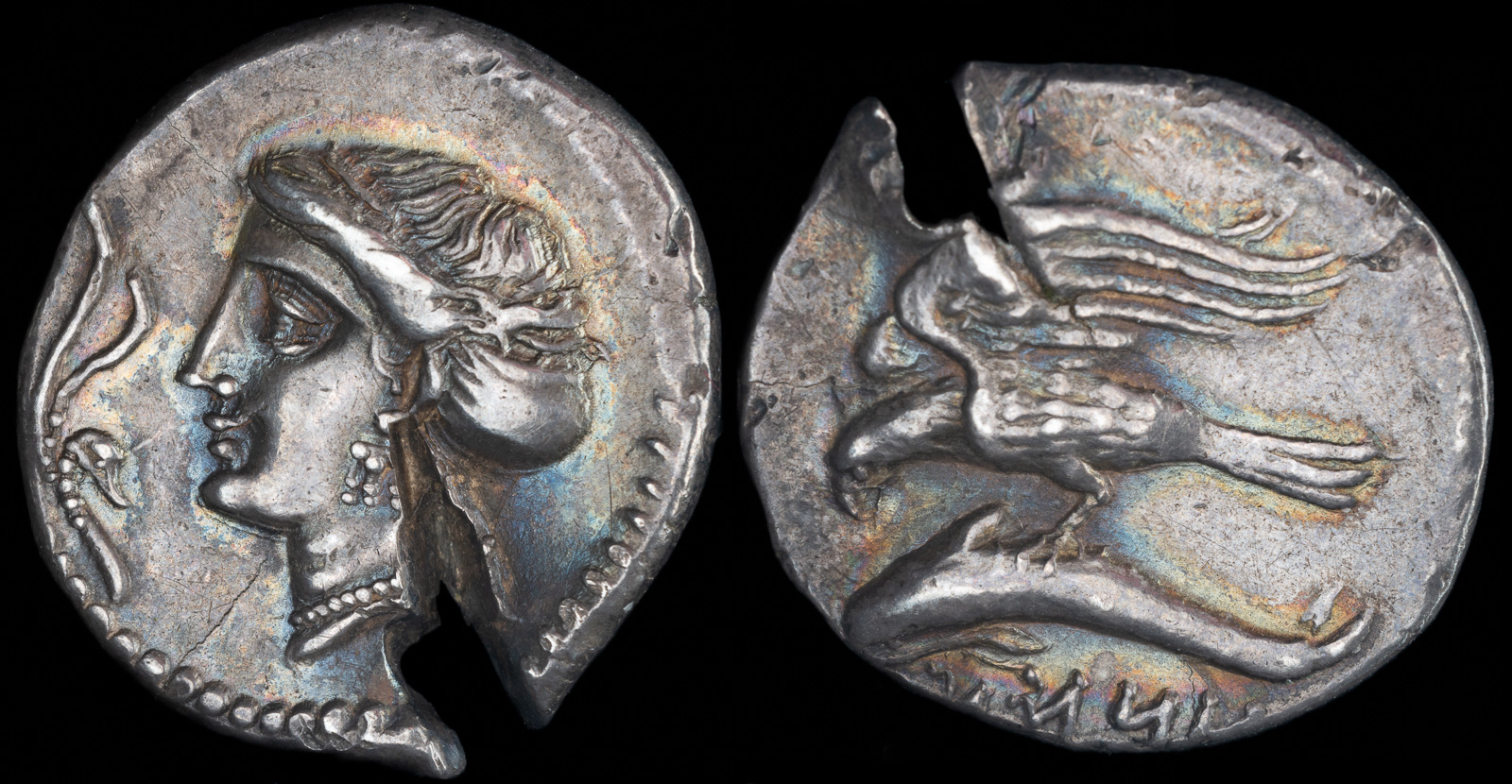Dolphin
View All Tags
One of the most prominent symbolic roles of dolphins in ancient Greece was their association with Poseidon, the god of the sea. Dolphins were often depicted as his companions or messengers, symbolizing the power and life-giving force of the ocean. As Poseidon ruled over both the waters and the creatures that inhabited them, the dolphin became a symbol of the harmonious balance between human life and the sea. Dolphins were believed to bring favor to sailors, ensuring safe passage and protection from the dangers of the ocean. This connection to Poseidon also gave dolphins an aura of benevolence, as they were seen as protectors of those who respected the sea.
In addition to their association with Poseidon, dolphins were linked to Apollo, the god of music, prophecy, and healing. According to myth, Apollo was once pursued by the serpent Pytho, but he escaped by turning into a dolphin. This myth led to the dolphin becoming a symbol of Apollo’s transformative power and his connection to music, as dolphins were often seen as graceful and melodious creatures, perhaps due to their clicks and whistles, which the Greeks might have interpreted as a form of song. In fact, Apollo’s temple at Delphi, which was one of the most important religious centers in ancient Greece, featured dolphin symbolism as part of its iconography, linking the creature to prophecy and divine wisdom.
Dolphins also had a strong association with humanity and friendship, representing a peaceful and cooperative relationship between humans and nature. Numerous myths tell of dolphins saving sailors from shipwrecks, guiding them to safety, or even carrying individuals to land when they were lost at sea. In these stories, dolphins are portrayed as compassionate creatures, acting as mediators between the human world and the often unpredictable and perilous sea. This benevolent nature helped cement the dolphin as a symbol of good fortune and hope, particularly for those dependent on the sea for their livelihood.
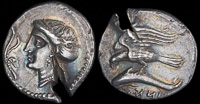
Abdasan, 360-330 BCE
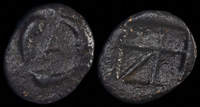
Aegina, Attica 350-338 BCE
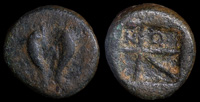
Aegina, Islands off Attica 360-350 BCE

Aegina, Islands off Attica 370-350 BCE
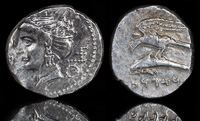
Ariarathes I 325 BCE
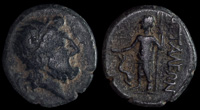
Attaleia, Pamphylia 159-100 BCE
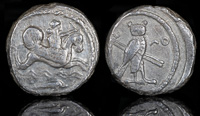
Azemilkos of Tyre 340/39 BCE
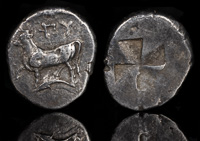
Byzantion 340-320 BCE

Eurymenai, Thessaly 352-344 BCE

Istros, Moesia 350-250 BCE
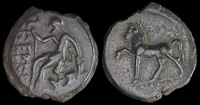
Karkinitis, Tauric Chersonesos 300-290 BCE
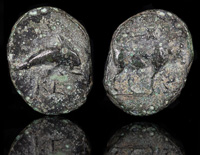
Keramos, Caria 4th century BCE
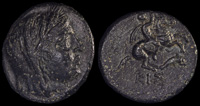
Kisthene, Mysia 4th century BCE
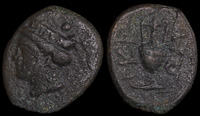
Kromna, Paphlagonia 330-300 BCE
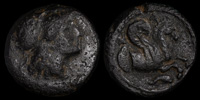
Lampsakos, Mysia 350-250 BCE
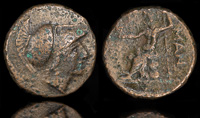
Mantineia, Arkadia 370-240 BCE
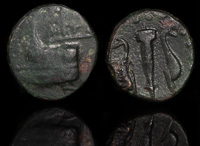
Megara 3rd-2nd cent BCE
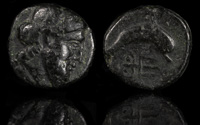
Mylasa 4th Century BCE
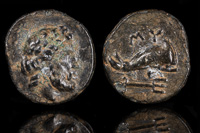
Mylasa, Ionia 4th Century BCE
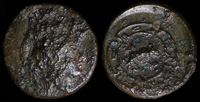
Naulochos 350-340 BCE
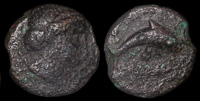
Nisyros, Islands off Caria 4th-3rd cent BCE
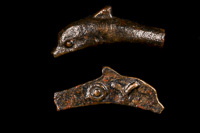
Olbia, Scythia 437-410 BCE

Olous, Crete 300-270 BCE
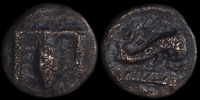
Pale, Kephallenia 4th Century BCE
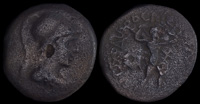
Patrai, Achaia 45-40 BCE
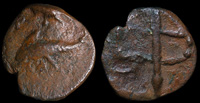
Phalasarna, Crete 3rd-2nd cent BCE
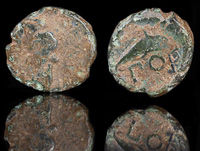
Pordoselene, Aeolis 400 BCE
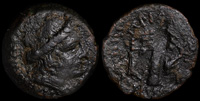
Priansos, Crete 320-270 BCE

Prusa ad Olympum, Bithynia 251-253 CE
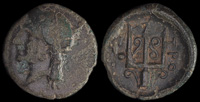
Troizen, Argolis 330-300 BCE
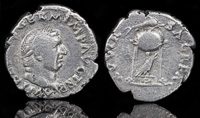
Vitellius 69 CE
